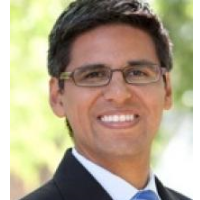Influential Assemblyman Quitting to Join Pharmaceutical Lobbyists
 Assemblyman Henry Perea
Assemblyman Henry Perea
The Los Angeles Times headline made it sound like a sports acquisition, which, in a sense, it may be: “Pharmaceutical Industry Group Scoops Up Assemblyman Henry Perea.”
The powerful, termed-out lawmaker, who can’t run for re-election in 2016, announced on December 1 he was going to bail early and take a job working for some entity that lobbies in Sacramento, but did not say who he would be advocating for. Now he has.
Fresno Democrat Perea, 38, will be a senior director of state advocacy for the Pharmaceutical Research and Manufacturers of America (PhRMA). That didn’t come as a huge shock to the Sacramento Bee, which noted when Perea announced his impending resignation that he was one of the top beneficiaries of Big Pharma contributions in 2013 and 2014 and a possible candidate for a job there.
By law, Perea cannot directly lobby his former colleagues for a year. But he will still be a busy man. The industry has already socked away $23 million to fight a November 2016 ballot measure that will “prohibit state agencies from paying more for a prescription drug than the lowest price paid for the same drug by the United States Department of Veterans Affairs.”
The VA pays about 20% less for drugs than California by leveraging its ginourmous buying power. The agency is also required by the law to keep prices low. The California Drug Price Relief Initiative would reduce costs for state retirees, AIDS patients, many Medi-Cal recipients and prisons.
Five million people could be affected. So might pharmaceutical industry profits. The initiative passed its signature count and was cleared for qualification a week ago.
Perea led a caucus of business-friendly Democrats in the Assembly who wielded significant power on critical issues. They successfully fought to scale back climate change legislation this past session and in 2014 were credited with scuttling legislation that would have helped low-income workers receive decent health care.
Assembly Bill 880 targeted the so-called Walmart Loophole, which let employers dodge requirements in the Affordable Care Act (Obamacare) that full-time workers be given health care by trimming their hours just enough to push them into Medi-Cal. One study (pdf) said 310,000 Californians would have benefited.
Lawmakers usually wait until the end of their terms before slipping through the revolving door into the lucrative field of corporate lobbying. But the Bee noted that Perea is at least the third to bail early. Senator Michael J. Rubio, a Democrat in Central Valley oil country, left to join Chevron in February 2013. His seat was won by a Republican.
Senator Bill Emmerson (R-Redlands) left in December 2013 to oversee lobbyists at the California Hospital Association.
Fresno County is none too pleased that Perea is leaving early. They have to hold a special election to replace him and, in the meantime, the district will go unrepresented in the Assembly for months.
Depending on when the election is held, it will cost taxpayers between $75,000 and $530,000. The county clerk has $7.4 million to spend for the year. “This is not in our existing budget,” County Clerk Brandi Orth told CalMatters.
Another initiative that could make it to the November ballot, the California Voters' Right to Know Act, includes a provision that doubles the lobbying ban to two years. It remains to be seen if slowing the revolving door will do much more than prevent dizziness and reduce unfortunate accidents.
–Ken Broder
To Learn More:
Pharmaceutical Industry Group Scoops Up Former Assemblyman Henry Perea (by Melanie Mason, Los Angeles Times)
What Happens When a Legislator Quits? (by Laurel Rosenhall, CalMatters)
Assemblyman Henry Perea Will Resign Seat to Become Capitol Advocate (by Christopher Cadelago and Jim Miller, Sacramento Bee)
Big Pharma Spending Millions to Defeat Effort to Slash Drug Prices (by Charles Piller, STAT)
- Top Stories
- Controversies
- Where is the Money Going?
- California and the Nation
- Appointments and Resignations
- Unusual News
- Latest News
- California Forbids U.S. Immigration Agents from Pretending to be Police
- California Lawmakers Urged to Strip “Self-Dealing” Tax Board of Its Duties
- Big Oil’s Grip on California
- Santa Cruz Police See Homeland Security Betrayal in Use of Gang Roundup as Cover for Immigration Raid
- Oil Companies Face Deadline to Stop Polluting California Groundwater





